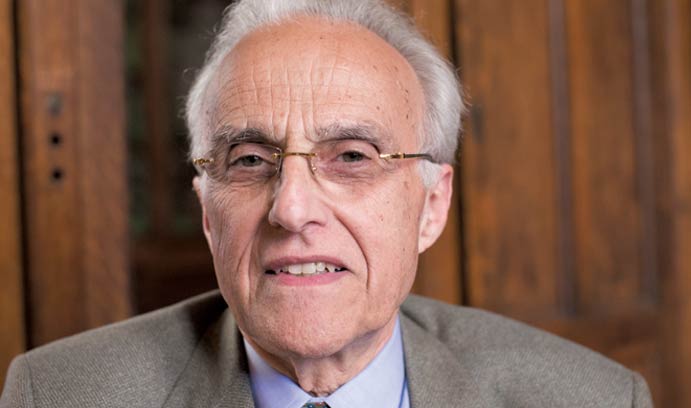Four Questions with John Esposito

Religion scholar John L. Esposito
You were raised Catholic and considered becoming a priest. Why your interest in Islam?
I was teaching at Rosemont College and needed a doctorate. There was a new program at Temple University; you could major in one religion and minor in two others. The chair said, “We’re hiring a Muslim scholar. I think you ought to study with him.” I decided, reluctantly, I would. The professor was very dynamic, and he made Islam and Islamic history come alive. It just grabbed me.
Back in those days, Judaism and Christianity would be seen as linked on one side, and then Islam was always put with Hinduism and Buddhism and everything else. And it actually didn’t belong there. It belonged in the Judeo-Christian-Islamic side of things because Muslims see, as Christians see, Jesus as a revelation that came as a further step beyond Judaism.
We talked about Islamic history, and one saw not only the extent to which Islam spread as a faith rapidly but also that it generated a civilization that made enormous contributions in everything from mathematics and geometry to architecture and astronomy. A whole world was opened up for me, and I found it absolutely fascinating.
In the aftermath of a contentious presidential election, how would you characterize American attitudes toward Muslims?
A significant number of Americans sees Islam as a religion with all its diversity. But on the other side, a very significant number … has a very skewed understanding of Islam; that is, that they take the very small but very dangerous acts of religious extremists and brushstroke the entire religion and the vast majority of Muslims.
Are we moving toward greater understanding of Islam?
What we do have is a crystallizing of the problem. ... There’s a bias toward Islam and Muslims, what we call Islamophobia. … It’s existed. You just weren’t aware of it. There wasn’t significant media coverage.
What we have now is an opportunity to be able to point to the problem and say, you can see some very bold examples of the problem. Let’s try to deal with that.
We have to protect America’s values. … The danger here, from my point of view, is this notion of American democracy, human rights, civil liberties can easily be eroded when we demonize another religion and a vast majority of its followers rather than demonize simply the extremists and the terrorists.
A question you raise in The Future of Islam is whether Islam is compatible with modern notions of democracy, gender equality and human rights. Can you speak to that?
The process of change in Islam has been retarded by two things. One, so much of the Muslim world went through a period of European colonialism … and things don’t develop when they’ve been colonized. Secondly, so many modern Muslim countries, after independence, are ruled by authoritarian regimes. ... But in that process for the last 100 years, you’ve had within Islam reformers who have said … if we look at our faith and our practice, much is good, but much also developed in a different period of history, in a different kind of social context, and therefore we need to reinterpret our religion.
Posted on:

